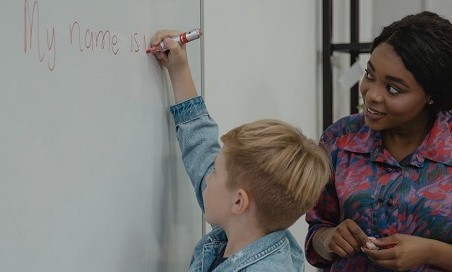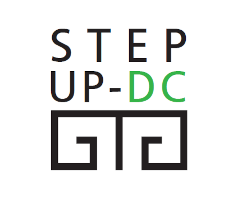Session 7C, ENGLISH LANGUAGE - 1 - Understanding intercultural communicative competence
STEPUP-DC Project

Course DescriptionBasic Topics
- Understanding intercultural communicative competence
- Developing intercultural awareness
- Dealing with diversity and overcoming stereotypes
Duration
The duration of the session is 9 hours (3 reading + 3 learning + 3 working/practicing)
Objectives
The Objective of this session is:
- Train future teachers to be able to promote the development of competences for democratic culture and intercultural dialogue through their (future) daily work with children and young people in schools
Learning outcomes
On the completion of the session, students will be able to:
- Define intercultural communicative competence and intercultural learning
- Demonstrate an understanding of the different levels of student diversity in the classroom
- Demonstrate an understanding of how different stereotypes can affect the teaching/learning process
Outcomes and CDC
- Knowledge and critical understanding
- 107: Can describe the ways in which his/her thoughts and emotions influence his/her behavior (basic)
- 110: Can reflect critically on his/her own prejudices and stereotypes and what lies behind them (advanced)
- 120: Can reflect critically on how her/his own world view is just one of many world views (basic)
- Values
- Valuing cultural diversity
- 201: Promotes the view that we should be tolerant of the different beliefs that are held by others in society (basic)
- 202: Promotes the view that one should always strive for mutual understanding and meaningful dialogue between people and groups who are perceived to be “different” from one another (basic)
- 203: Argues that one should promote communication and dialogue between people from different cultural backgrounds (basic/intermediate)
- Attitudes
- Open to Cultural Otherness
- 401: Shows interest in learning about people’s beliefs, values, traditions and world views (basic)
- Tolerance of ambiguity
- 901: Engages well with other people who have a variety of different points of view (basic)
- Skills
- Autonomous Learning Skills
- 1140: Accomplishes learning tasks independently (basic)
- Skills of listening and observing
- 1201: Listens carefully to differing opinionse (basic)
- Linguistic, communicative and plurilingual skills
- 1505: Can get his/her point across (basic)
- Understanding intercultural communicative competence
- Developing intercultural awareness
- Dealing with diversity and overcoming stereotypes
The duration of the session is 9 hours (3 reading + 3 learning + 3 working/practicing)
The Objective of this session is:
- Train future teachers to be able to promote the development of competences for democratic culture and intercultural dialogue through their (future) daily work with children and young people in schools
On the completion of the session, students will be able to:
- Define intercultural communicative competence and intercultural learning
- Demonstrate an understanding of the different levels of student diversity in the classroom
- Demonstrate an understanding of how different stereotypes can affect the teaching/learning process
- Knowledge and critical understanding
- 107: Can describe the ways in which his/her thoughts and emotions influence his/her behavior (basic)
- 110: Can reflect critically on his/her own prejudices and stereotypes and what lies behind them (advanced)
- 120: Can reflect critically on how her/his own world view is just one of many world views (basic)
- Values
- Valuing cultural diversity
- 201: Promotes the view that we should be tolerant of the different beliefs that are held by others in society (basic)
- 202: Promotes the view that one should always strive for mutual understanding and meaningful dialogue between people and groups who are perceived to be “different” from one another (basic)
- 203: Argues that one should promote communication and dialogue between people from different cultural backgrounds (basic/intermediate)
- Valuing cultural diversity
- Attitudes
- Open to Cultural Otherness
- 401: Shows interest in learning about people’s beliefs, values, traditions and world views (basic)
- Tolerance of ambiguity
- 901: Engages well with other people who have a variety of different points of view (basic)
- Open to Cultural Otherness
- Skills
- Autonomous Learning Skills
- 1140: Accomplishes learning tasks independently (basic)
- Skills of listening and observing
- 1201: Listens carefully to differing opinionse (basic)
- Linguistic, communicative and plurilingual skills
- 1505: Can get his/her point across (basic)
- Autonomous Learning Skills
A series of resources that the student teacher must study in this session and a series of additional resources for further study.
A full paper and additional e-lessons on the topics of the session and additional interactive presentation of the materials, for the student teachers to study all the materials in a row.
A series of authentic, up to date and relevant activities with their accompanying materials, which deliver the intended learning outcomes of the session and are carried out face to face or E-learning with groups of student teachers.
Several types of questions to evaluate how much the student teachers have learned throughout the session (reading material, learning material and workshop).
